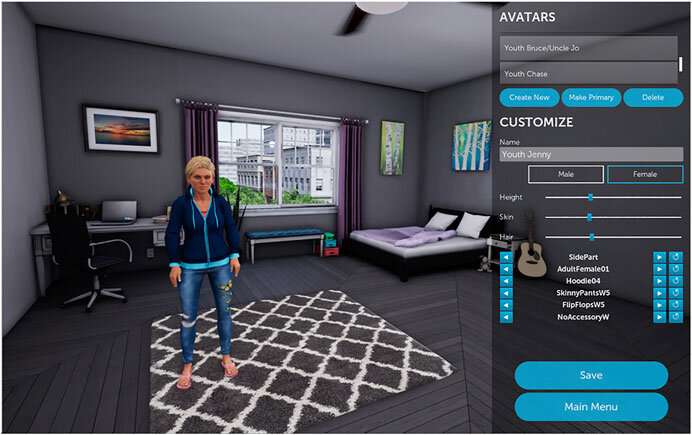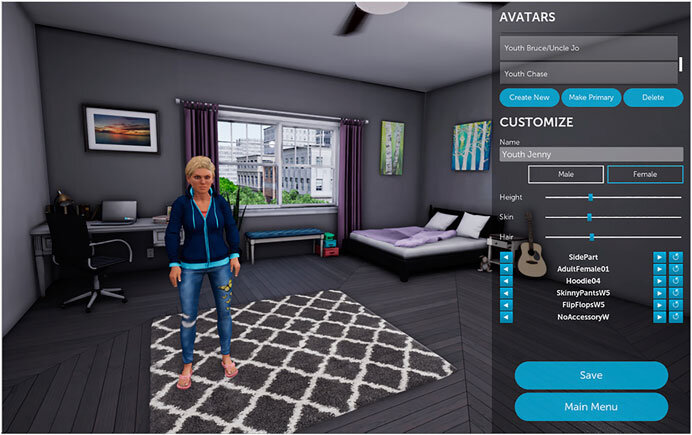
New research from Center for BrainHealth at The University of Texas at Dallas demonstrates that Charisma Virtual Social Coaching supports social skill development through, controlled, targeted practice in a computer-generated, three-dimensional virtual environment. Charisma is a personalized, strategy-focused social coaching program conducted entirely online.
This award-winning, avatar-driven virtual gaming environment, uses a combination of social cognitive strategy training, strengths-based coaching, and real-time practice to build skills associated with initiating conversations, maintaining relationships, promoting emotional intelligence, managing interpersonal dynamics, and improving overall daily social interactions.
The research, “Charisma Virtual Social Training: A Digital Health Platform and Protocol,” was recently published in Frontiers in Virtual Reality.
This study investigated the impact of 10 hours of social training on sixty-seven children and adolescents between the ages of 9 and 17. The research explored two delivery models (in-person versus remote) in two populations (parent report of autism spectrum disorder-ASD diagnosis versus non-ASD diagnosis including Attention-Deficit/Hyperactivity Disorder-ADHD, mental health challenges and other social learning disablities).
Nine social cognitive strategies were taught and then practiced with interspersed social coaching. Pre- and post-training results demonstrated significant benefits in youth being able to recognize emotions, infer social intentions, understand perspectives and describe their pro-social positive qualities.
Training was effective irrespective of delivery model. This important finding may eliminate the need for youth to interact with clinicians on-site at a school or specialty center and allow online training in the comfort and safety of home. Likewise, there was no difference in performance results between the ASD versus non-ASD groups, suggesting Charisma may be effective for any youth struggling with social interactions.
Source: Read Full Article
